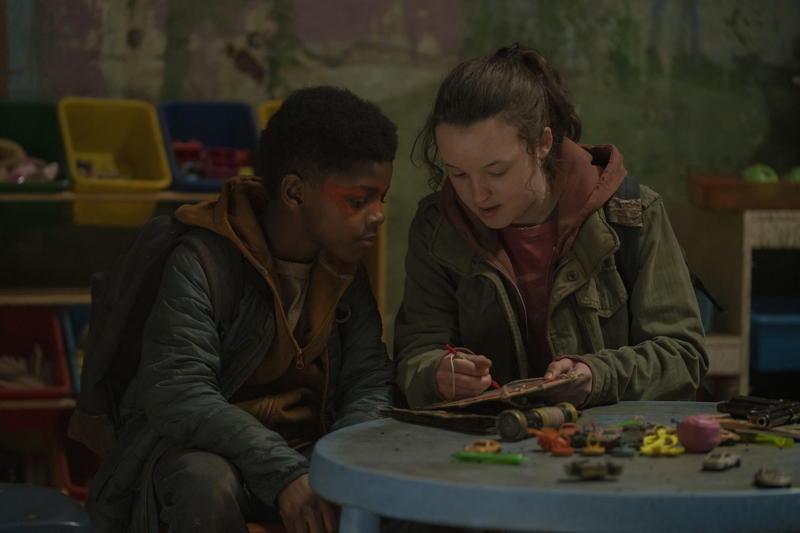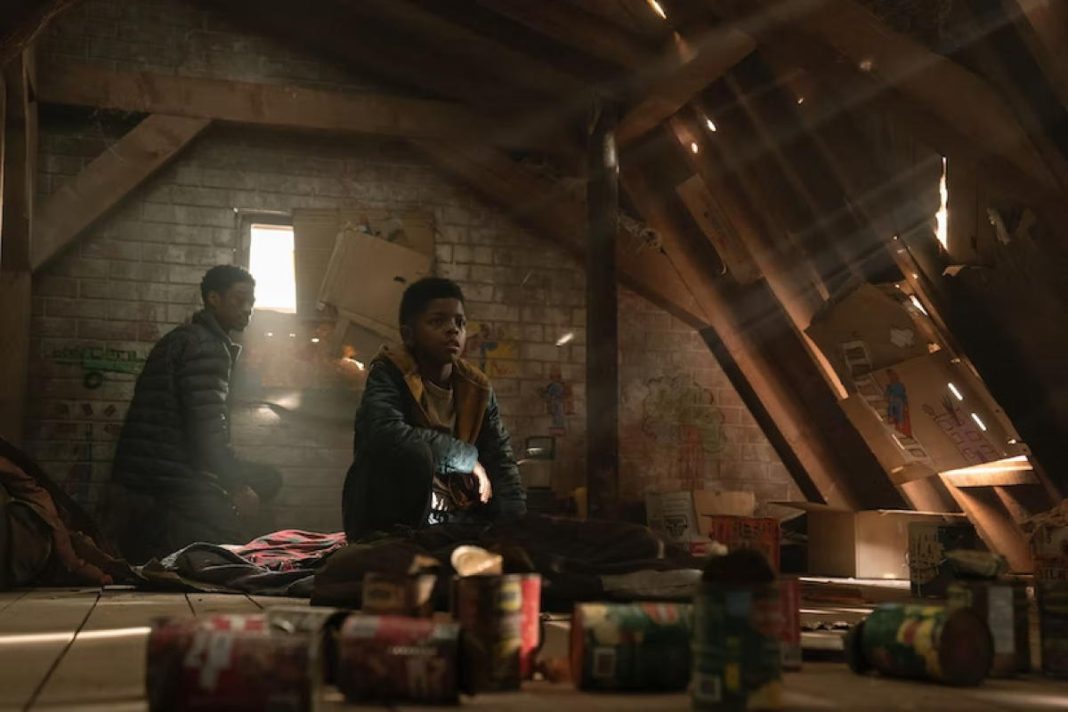by Kelas Lloyd
[Spoilers for The Last of Us follow]
In most outbreak apocalypse shows, movies, and video games, disabled people are either left out entirely or they’re portrayed like Mrs. Adler – they are a manifestation of people’s pre-outbreak fears that devolve into a vector to destroy their caretakers. They aren’t people themselves.
Episode three of The Last of Us, “Long Long Time”, gave us a surprise when it disabled another character, Frank. Frank was loved, he was a part of things, we saw him having friends and a life. Most of that, though, was pre-disability. What we see of him while he’s disabled is how he struggles, how it’s difficult, and finally how it was too much. As Bill went out with him it wasn’t entirely the harmful, predictable choice of death being better than disability, but it was close and left me disappointed. “Long Long Time” was a massive improvement over the game’s representation of disability, which is a grand total of zero. It just didn’t stick the landing on that front.
And then we had episode five, “Endure and Survive.” In the game, Henry and Sam are both abled, so it was a surprise to see that Sam was deaf in the show. That surprise turned into joy, though, when nothing was about the disability. Sam had an accommodation, his little write-and-erase board, and not only did his brother know ASL, Ellie very quickly starts using it as well. He’s disabled, but it’s just an aspect of the character. It isn’t a plot point. It isn’t something that slows or weighs them down.

Now granted, his illness (leukemia) is a plot point, but its impact is the choice Henry makes and the ripple effects Henry’s choice has. Sam is never treated by Henry as a burden, and the only person who thinks he should have died is a very broken woman whose perspective we know is wrong.
There was genuine compassion in the treatment of Sam, and he was even portrayed by a Deaf actor, which is crucial when it comes to disability representation. Mrs. Adler and Frank were portrayed by (as far as I know) abled actors who definitely were not disabled the way their characters were. Sam is a deaf character, played by a Deaf actor, and that’s important in an industry that closes out disabled people.
The show even made one more change. In the game, Sam hides that he’s been bitten. It’s not a surprise, and it doesn’t detract from the character because he’s so young and he does make it clear that he’s terrified. If the pandemic has taught me anything, it’s that people will absolutely hide and lie about being infected, even when they claim the care about you, so Sam wasn’t weakened as a character by hiding it. But in the show, he tells Ellie. He reaches out in faith, terrified, to his friend, and she reaches right back with her own faith.
Yes, that faith fails. Yes, he dies. But he dies the way abled people do in this apocalypse, and was allowed to simply be a disabled boy, beloved by his older brother, with friends and hopes and interests and fears.
I don’t see a lot of good disability representation out there, but this episode of The Last of Us was beautiful. I also don’t often cry at things, and when I do cry, I don’t tend to admit it. This time I’m admitting that I cried.
This episode hurt in a beautiful, fantastic way, and I have no criticism.
(As a note, capital-D Deaf refers to people who feel like they’re part of the Deaf community and from what I can tell, the young actor for Sam, Kevionn Woodard, is indeed part of it. I’ve chosen to use a lower case d for the character of Sam as Sam and Henry are so disconnected from any community at all. This may be the wrong choice; while I’m disabled I’m neither D/deaf nor hard of hearing and I apologize if I’ve made the wrong call here.)








